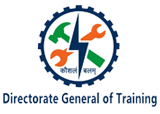CENTRE OF EXCELLENCE SCHEME(COE)
Definition
“Centre of Excellence is special Institute for Vocational Training characterized by close links between Institutes, other training providers, other employment interests and communities”
Introduction
- Union Finance Minister in his Budget Speech 2004-05 had announced measures for upgradation of 500 ITIs in the country. Subsequently, as per the advice of M/o Finance, action has been initiated for upgradation of 100 ITIs from domestic resources and 400 ITIs through World Bank assistance.
- Said 500 ITIs to be funded from domestic & World Bank resources have been distributed in 26 States/UTs (other than J&K, Sikkim and NE States) in proportion to the number of Government ITIs in these States.
- 100 ITI's have taken up in phase-I (2005-06) all over India from domestic resources. In the phase-II (2006-07) 100 more ITI's with assistance from World Bank have taken up for upgradation at the National level. During Phase-III (2007-08) 150 ITI's have been taken up. Rest of the 150 ITI's will be taken up in the year 2008-09 during Phase-IV.
- The outlay of Domestic Funded CoE’s is Rs.1-6 crore per CoE and that of World Bank funded CoE’s Rs.3.5 crore per CoE’s.
- In the State of Punjab, Department is implementing the scheme in 34 ITIs (8 Domestic Funded + 26 World Bank funded).
- The total cost of the scheme is to be shared in ratio of 75:25 as advised by M/o Finance by Central and State respective.
- It aims to produce appropriately qualified and skilled workers with excellent employment and career prospectus which meet the needs of the economy.
- Modernization & Upgradation of ITIs into Centres of Excellence.
- This scheme has been launched to bridge the gap of skill requirement of Industry & Service Sector and that is presently being provided in the ITI's.
- In the state of Punjab 8 ITIs have been upgraded under domestic funded & 26 ITIs have bee
Objectives of Scheme
- Main objective is to produce multi skilled workforce of world standard by Introducing new multi-skill modular courses as per needs of Industry.
- Improving physical infrastructure facilities like building, equipment etc.
- Adopting new training technology with close involvement of industry.
- Empowering these Centres by providing sufficient autonomy.
- Building up partnership with nearby industry setting up Institute Management Committee (IMC).
Institute Management Committee (IMC)
Active participation of the Industry for the Centres of Excellence will be through constitution of Institute Management Committee (IMC) in every stage of designing and implementing the Scheme, for each ITI proposed to be upgraded. The IMC comprises members from State Government, Industry etc. with a representative from an Industry of repute as its Chairman. The States will empower the IMCs adequately to enable them to discharge their below mentioned roles and responsibilities effectively. Broadly, the IMC will have following roles and responsibilities:
- Generation of revenue through various means such as projects from industry and to use these funds as decided by them.
- Forecast of new emerging training areas
- Development of curriculum
- Selection of trainees
- Training of trainers
- Appointment of Contract faculty/Guest faculty
- On the job training
- Testing and certification
- Placement of trainees passing out from the CoE
- Industry associations may make financial contribution and/or donate equipment to the CoE.
Main Features of Scheme
· Multi-Entry and Multi-Exist Provisions
- Trainee can opt to go the labour market after completing Broad Based Basic Training (BBBT) of one year duration as well as after completing 1½ year of training.
- Trainee can come back after come time to seek admission for advanced/specialized training in another module.
- ITI pass out trainee of the particular trade(s) from the conventional system can seek admission for advanced/specialized training.
Structure of the courses
- Broad based basic training in a number of skill areas related to the sector during first year.
- Short term modular courses ( Advanced Courses) would be offered after the broad based training for the next 6 months
- The trade testing for the first year broad based basic training as well as Advanced modular courses for the first 6 months during second year will be done at National level under the aegis of National Council for Vocational Training (NCVT).
- Specialized modular courses as per need of the local industry would be organized for the last phase of training for which the testing and certification will be done jointly by the State Government and Industry. These certificates shall be recognized by NCVT.
- Training on the factory shop floor should constitute at least 25-40% of the curriculum. Modalities for this purpose shall be worked out in consultations with the industry associations.
Training Duration
- First Year
In the first year, Broad Based Basic Training there will be six modules. For each module the training duration will be of 8 weeks. Trade Practical will be 28 hours /week and Trade theory for 4 hours /week.
Apart from above following Generic modules will be taught throughout the year.
a) Workshop Calculation & Science- 2 hrs/week for 48 weeks.
b) Engineering Drawing - 2 hrs/ week for 48 weeks.
c) Entrepreneurship and Communication skills- 2 hrs/week for 48 weeks.
In addition, 4 hours/week for 48 weeks have been kept for Library studies & Physical Training. After All India Trade Test (AITT), NTC will be awarded by NCVT. - Second Year (first six months)
In the second year, Training in one of six Advance Modules of six months duration will be offered. After AITT, NTC will be awarded by NCVT. - Second Year (second six months)
In the second year, Training in one of six Specialized Modules of six months duration will be offered in collaboration with Industry. After completion of training, Joint Certificate will be awarded by Industry, State and counter signed by NCVT.
Infrastructure
A well maintained and furnished building has been provided for each of the Centre's of Excellence. Necessary facilities like toilets, drinking water etc have also been made available.
The theory classrooms have latest infrastructure including AV Aids such as Suitable Chairs/ tables, OHP/Epidiascope, Laptop computer/PC (latest) & LCD projector, Magnetic white board, White board, Flip chart etc. Other Equipment such as Scanner, Photocopy Machine and PC/printer along with suitable accessories/furniture and internet connection have also been made available.
All the Labs/Workshops of the respective Institutes have latest state of the Art Equipment. All the Centres of Excellence is being provided a conference Hall and one Library well equipped with latest instructional material such books, periodicals, CD's etc. Internet access has been made available to all the Trainees being admitted under the CoE Scheme.
Eligibility Criteria for admission:
10th pass under 10+2 system for BBBT. BBBT pass or NTC in relevant trade/Diploma in Relevant Trade for Advance Modules.
Batch size :
- For BBBT: 96 trainees 16 in each module ( 20% supernumeraries be allowed to take care of drop outs as already exist under CTS)
- For Advance Module: 16 Trainees in each module (20% supernumeraries be allowed to take care of drop outs as already exist under CTS.






